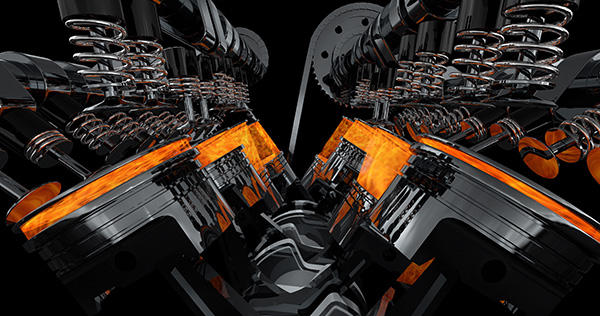
Every car makes a variety of sounds while running, from the hum of the engine to the whir of the fans. But if you hear a new, persistent knocking sound, it’s time to pay attention. Unfamiliar engine noises are often the first indicator that something is wrong. While some sounds may turn out to be harmless or minor, knocking is one that you should never ignore.
This noise often sounds like a rhythmic tapping or thudding coming from the engine bay. It might appear only under certain conditions or persist throughout the entire drive. Either way, a knocking noise should prompt immediate inspection to avoid further damage.
Common Causes of Engine Knocking
One of the most frequent causes of engine knock is improper combustion. When fuel in the engine’s cylinders ignites unevenly or at the wrong time, it creates shockwaves that produce a distinctive knock. This can happen for a few different reasons, including low-octane fuel, timing issues, or a malfunctioning knock sensor.
Your engine is designed to burn a specific grade of fuel. If you’ve recently filled up with a lower grade than recommended, the fuel may not burn efficiently, leading to premature combustion. Over time, repeated knocking from incorrect combustion can damage pistons, valves, or the cylinder walls.
Worn Engine Components and Mechanical Damage
Knocking sounds can also result from worn internal engine parts. Bearings, pistons, and connecting rods all move under extreme stress. As these components wear out or lose lubrication, they may begin to shift out of place slightly, causing metal-on-metal contact. The result is often a consistent knocking or clunking sound, especially during acceleration or when starting the vehicle cold.
This form of knocking is usually a sign of more advanced wear and tear, often found in high-mileage vehicles or engines that haven’t had regular oil changes. In these cases, the noise may begin subtly and worsen over time.
Detonation and Pre-Ignition
In high-performance or older engines, detonation or pre-ignition may also cause knocking. These conditions occur when fuel ignites too early—before the piston reaches the top of its stroke—which puts tremendous pressure on the engine and produces a knocking sound.
Detonation is especially dangerous because it causes an uneven rise in pressure that can lead to cracks in pistons or even holes in the cylinder walls. Pre-ignition, although similar, often originates from hotspots in the combustion chamber, which can be caused by carbon buildup or a faulty spark plug.
Other Sources: Suspension and Accessories
While most people associate knocking with the engine itself, not all knocks originate there. Worn suspension parts, such as struts or sway bar links, can create knocking noises when driving over bumps or turning. These knocks are often mistaken for engine problems, especially when they echo through the chassis.
Loose components in the accessory drive system like the serpentine belt, tensioners, or pulleys, can also create knocking or rattling noises that may change with engine RPM. If your engine sounds like it's knocking but also chirping or squealing, it could be a belt-related issue instead of internal engine trouble.
What You Should Do When You Hear Knocking
If your car starts making a knocking sound, don’t turn up the radio to drown it out. Try to identify when it occurs: Is it tied to engine speed, only during acceleration, or when the car is idling? Does it go away when the engine warms up?
Avoid hard acceleration or long drives until the issue is inspected. Continuing to operate a vehicle with a knocking engine can lead to costly damage, especially if a critical component fails while you’re driving. Catching the cause early often means the difference between a minor repair and a full engine rebuild.
Get Professional Diagnostics from Sunny Service Center in Atlantic City, NJ
Diagnosing the source of an engine knock requires the right tools and experience. Technicians typically begin by scanning for error codes and conducting a mechanical inspection. They may check for wear in the timing system, look for metal particles in the oil, or measure compression across the engine’s cylinders.
In many cases, the solution may be simple, such as replacing worn spark plugs, switching to the right fuel grade, or cleaning carbon buildup. However, if more severe engine wear is involved, acting early can help prevent catastrophic damage.
If your vehicle has developed a knocking sound, bring it to Sunny Service Center in Atlantic City, NJ. Our expert team will identify the cause and provide the repairs you need to restore peace of mind and engine performance. Don’t let that knock become a breakdown, and get it checked today.